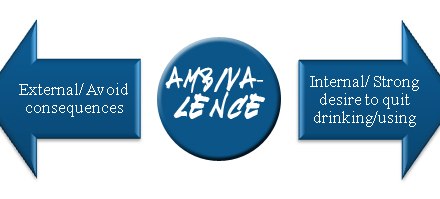Can someone’s Internet use legitimately be characterized as ‘addictive’?
I suppose it can. Then again, maybe not. Depends on whose definition of addiction we decide to use.
There are quite a few in circulation, after all.
I can understand how Internet-related disorders that share features with SUDs — mainly the compulsiveness, loss of control, and of course, continued use despite adverse consequences – could qualify. Still, we can’t ignore the obvious differences — most of which have to do with the effects that chronic ingestion of psychoactive substances have on the brain and body. I’m including the influence of tolerance and dependence. Those two phenomena alone are often key to understanding the behavior of a substance-addicted person.
It’s also true that Internet disorders share features with a host of other compulsive behaviors that we don’t ordinarily refer to as addictions. Such as those found with OCD.
So let’s tackle a more practical issue. What resources are available to people who suffer from both an Internet disorder and a Substance Use Disorder? In my experience, the two often co-occur in the same individual.
I recall one case, memorable because it was during the early days of widespread online access, that involved a young man admitted to Rehab for amphetamine abuse. In group, he described long evenings devoted to a popular online multiplayer game (I forget which one). His routine was to begin by swallowing a handful of OTC stimulants, the sort truckers use to stay awake during long road trips. Then he proceeded to play the game, often on through the night. Slept all the next day, of course, which he insisted wasn’t a problem, because his mother worked nights at the local hospital and she was usually sleeping at the same time he was.
If nobody complains, your behavior can’t be considered a problem, right? That was the argument he made in group.
In recent months, however, he admitted to great difficulty sleeping. He’d lay in bed, visualizing scenes from the game, as if he were still playing it. Eventually he’d give up on sleep, log back online, and resume play with a new group of other people. Some weekends, he confessed, he wouldn’t sleep until he’d been online for 36 hours. To make that level of play possible, he’d switched from caffeine pills to amphetamines. unfortunatel, he found it made sleep even more of a challenge.
It was when he began to exhibit signs of paranoia, hearing voices whispering nasty things about him, that this mother became frightened and dragged him off to a psychiatrist friend, who sent him our way for rehab. Our medical director re-evaluated him, decided he was intermittently psychotic, and placed him on antipsychotic medications — which helped.
From a counseling perspective, it was clear to our clinical team that his habitual Internet use had reached a point where it was inseparable from his drug use. In practical terms, they couldn’t treat one without treating the other. They were confident they could address the stimulant problem, but when it came to the online stuff, they were at a loss. “Maybe just sell the computer?” suggested one, as if that were the sole source of access to the Internet.
The lack of resources, especially peer support, stayed with me. I looked around a bit online for anything that appeared to qualify as either low-cost (or no-cost) support for persons with Internet problems.
I found two that interested me. I wasn’t familiar with either, so I can’t offer a recommendation. If interested, you can investigate.
As for whether Internet disorders are really addictions: you can decide for yourselves.
Here’s one group I miss that uses a familiar 12 Step approach:
I couldn’t stop myself’: inside the 12-step program for internet addiction
And this is a nonprofit that relies on mindfulness, an approach people in recovery from other disorders sometimes find helpful:













